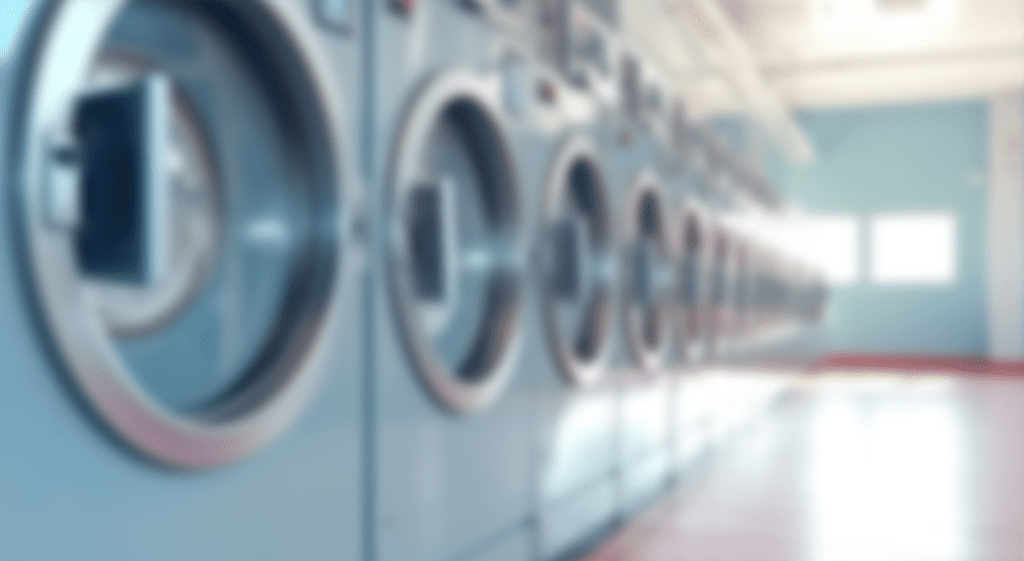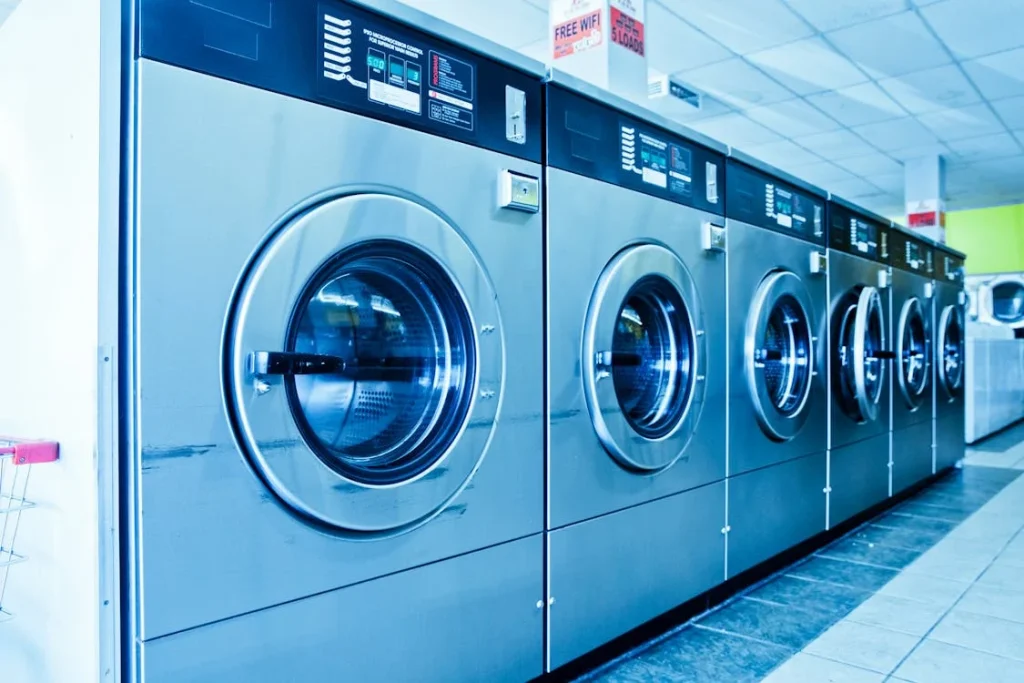Running a business that handles large volumes of laundry? Then you know how critical it is to have a reliable industrial clothes washing machine. Unlike household machines, industrial washers are designed to handle heavy-duty loads, ensuring quick turnaround times and spotless results. In this guide, we’ll help you find the best industrial clothes washing machine for your business needs, ensuring maximum efficiency and long-term savings.
Table of Contents
- 1. What is an Industrial Clothes Washing Machine?
- 2. Why Businesses Need Industrial Washing Machines
- 3. Types of Industrial Clothes Washing Machines
- 4. Key Features to Look for in an Industrial Clothes Washing Machine
- 5. Benefits of Using Industrial Clothes Washing Machines
- 6. Capacity and Load Size Considerations
- 7. Energy Efficiency and Water Usage
- 8. Automation and Smart Control Features
- 9. Durability and Build Quality
- 10. Maintenance and Cleaning Requirements
- 11. Cost and Return on Investment (ROI)
- 12. Safety Features to Consider
- 13. Top Brands and Models to Consider
- 14. Best Industrial Washing Machines for Specific Fabrics
- 15. How to Choose the Right Machine for Your Business
- 16. Installation and Setup Tips
- 17. Common Issues and Troubleshooting
- 18. Conclusion
- 19. FAQs
1. What is an Industrial Clothes Washing Machine?
An industrial clothes washing machine is a large-scale washer built to handle heavy loads and high-frequency use. These machines are commonly used in industries such as hospitality, healthcare, and manufacturing, where quick and efficient laundry processing is essential. Unlike residential machines, industrial washers are designed for durability and consistent performance under intense use.

2. Why Businesses Need Industrial Washing Machines
Businesses like hotels, hospitals, and laundromats handle tons of laundry daily. A domestic washing machine just won’t cut it when you’re washing dozens of sheets, towels, or uniforms every day. Industrial washing machines are built to withstand heavy use, offer faster cleaning cycles, and reduce energy consumption—saving both time and money. Investing in the right machine ensures a higher return on investment and better customer satisfaction.
3. Types of Industrial Clothes Washing Machines
Industrial washing machines come in various designs to suit different business needs:
- Washer-Extractors – These machines combine washing and spinning functions, making them ideal for laundromats and healthcare facilities.
- Barrier Washers – Designed for high-hygiene environments, these machines prevent cross-contamination by separating clean and dirty laundry areas.
- Continuous Batch Washers – Best suited for large-scale operations, these machines handle high volumes of laundry through continuous cycles.
4. Key Features to Look for in an Industrial Clothes Washing Machine
Choosing the right features ensures long-term efficiency and cost savings. Key features include:
- Capacity – Ensure the machine size matches your daily laundry volume.
- Efficiency – Look for energy and water-saving certifications.
- Control Options – Smart controls and pre-programmed settings can save time.
- Material Quality – Stainless steel drums and corrosion-resistant parts ensure longevity.
5. Benefits of Using Industrial Clothes Washing Machines
Why upgrade to an industrial machine? Here’s why:
- Faster Cycles – Reduce cleaning times without compromising results.
- Cost Savings – Lower water and energy consumption over time.
- Increased Capacity – Handle more laundry in a single load.
- Durability – Built to last under constant heavy use.
6. Capacity and Load Size Considerations
Selecting the right capacity is crucial. Overloading can lead to poor cleaning, while underloading wastes energy and water. For large-scale businesses, a machine with a 100-pound capacity or higher is ideal. For medium-sized operations, a 50- to 75-pound machine may be sufficient.
7. Energy Efficiency and Water Usage
Energy-efficient machines can significantly reduce operating costs. Look for washers with Energy Star ratings and water-saving features like load-sensing technology, which adjusts water levels based on load size.
8. Automation and Smart Control Features
Modern industrial washers come with smart control panels, allowing you to program washing cycles and monitor performance remotely. Touch screens and automatic detergent dispensers simplify the process and improve efficiency.
9. Durability and Build Quality
Investing in a machine with high-quality materials like stainless steel ensures long-term performance. Machines with reinforced frames and corrosion-resistant parts can withstand years of heavy use.
10. Maintenance and Cleaning Requirements
Regular maintenance extends the life of your machine. Clean lint filters, check hoses for leaks, and run self-cleaning cycles to prevent buildup. Proper maintenance reduces downtime and costly repairs.
11. Cost and Return on Investment (ROI)
While industrial machines have a higher upfront cost, the long-term savings in energy, water, and labor make them worth the investment. Lower maintenance costs and higher efficiency result in a faster return on investment.
12. Safety Features to Consider
Safety matters when handling heavy loads. Look for features like emergency stop buttons, door locks, and overflow protection. Machines with automatic load balancing also reduce strain on the motor and frame.
13. Top Brands and Models to Consider
Leading brands in the industrial washing machine market include:
- Speed Queen – Known for durable and reliable machines.
- Electrolux – Offers high-efficiency models with smart features.
- Maytag – Excellent for heavy-duty use and consistent performance.
14. Best Industrial Washing Machines for Specific Fabrics
Different fabrics require different care. Here’s how to handle them:
14.1. Cotton and Linen
Use high-temperature cycles to eliminate bacteria and deep stains. Ensure thorough rinsing to avoid detergent residue.
14.2. Synthetic Fabrics
Wash on lower temperatures to prevent shrinkage and fading. Use gentle detergents to protect fibers.
14.3. Delicate Fabrics
Silk and wool require cold water and gentle cycles to maintain softness and shape.
14.4. Heavy-Duty Fabrics
Denim, canvas, and workwear need high-temperature washes and powerful spin cycles for effective cleaning.
15. How to Choose the Right Machine for Your Business
Selecting the right machine depends on your industry and laundry volume. Healthcare facilities may require barrier washers for hygiene control, while hotels and resorts benefit from high-capacity washer-extractors. Assess your load size, fabric types, and available space before making a decision. Also, consider automation features and energy efficiency to improve overall performance and reduce costs.
16. Installation and Setup Tips
Proper installation ensures that your machine functions efficiently from day one. Make sure the machine is placed on a level surface to prevent vibrations. Connect water supply lines securely and check for proper drainage. Test the machine after installation to confirm that it’s operating smoothly. Professional installation may be necessary for large-capacity models to ensure safety and compliance with local regulations.
17. Common Issues and Troubleshooting
Even the best machines encounter problems occasionally. Here are some common issues and solutions:
- Machine Won’t Start – Check the power supply and circuit breaker.
- Leaks – Inspect hoses and connections for damage.
- Poor Cleaning Results – Ensure proper load size and use the correct detergent.
- Unusual Noises – Check for loose objects in the drum or an unbalanced load.
Regular maintenance and timely repairs will help keep your machine in top working condition.
18. Conclusion
Investing in an industrial clothes washing machine can significantly improve your business’s laundry process. From high-capacity loads to delicate fabrics, the right machine will save you time, reduce operating costs, and deliver consistently clean results. Evaluate your business needs, choose a machine with the right features, and enjoy the benefits of faster and more efficient laundry cycles. Contact us today to learn more about industrial clothes washing machine.
19. FAQs
Q: How often should I service my industrial washing machine?
A: It’s recommended to service your machine every six months to ensure optimal performance.
Q: What’s the average lifespan of an industrial washing machine?
A: With proper maintenance, most machines last between 10 and 15 years.
Q: Can industrial washers handle delicate fabrics like silk?
A: Yes, modern machines have specialized settings for delicate fabrics.
Q: What size machine is best for a hotel laundry room?
A: A 100-pound capacity machine or larger is ideal for hotels handling high volumes of laundry.
Here are some other articles that we think might interest you:
Industrial Washing Machines for Hotels and Hospitality


